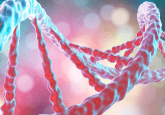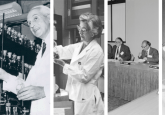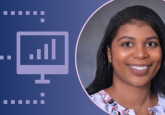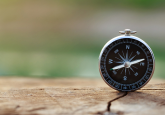Where culture meets science: enriching the research experience
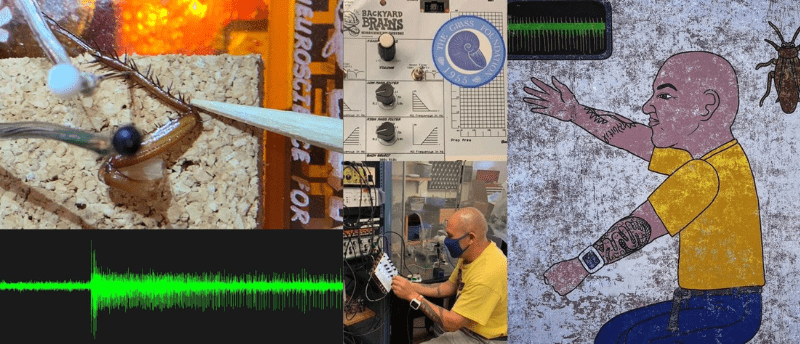
Mentoring programs and hands-on approaches to study invertebrate behavior and brain physiology are making neuroscience research a more accessible field for marginalized students.
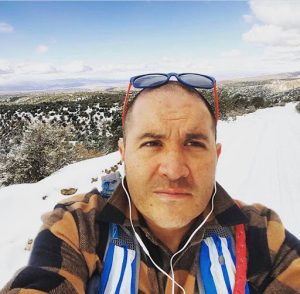 Ulises Ricoy (left) is an Associate Research Scientist and Director of Undergraduate Neuroscience and Cognitive Sciences at the University of Arizona (AZ, USA). He is also the Director of The Grass Foundation Outreach Initiatives (MA, USA), a non-profit foundation that advances neuroscience knowledge and facilitates science education. A trained neuroscientist, Ulises has dedicated his professional career to developing hands-on, accessible ways to study neuroscience as well as advocating for mentoring programs in his community. Our Assistant Editor, Beatrice Bowlby, had the opportunity to speak with Ulises about his research, and the importance of education and outreach.
Ulises Ricoy (left) is an Associate Research Scientist and Director of Undergraduate Neuroscience and Cognitive Sciences at the University of Arizona (AZ, USA). He is also the Director of The Grass Foundation Outreach Initiatives (MA, USA), a non-profit foundation that advances neuroscience knowledge and facilitates science education. A trained neuroscientist, Ulises has dedicated his professional career to developing hands-on, accessible ways to study neuroscience as well as advocating for mentoring programs in his community. Our Assistant Editor, Beatrice Bowlby, had the opportunity to speak with Ulises about his research, and the importance of education and outreach.
Ulises is Mexican American, born in Austin, Texas (USA), and growing up in Mexico City (Mexico) before returning to the United States for High School. By reflecting on his own identity and the role it plays in his neuroscience research, Ulises has realized that bringing “all of himself to the table” enriches his research experience.
Ulises commented, “sometimes in science those [conversations about identity and heritage] are conversations that you never have. You leave that outside. I don’t necessarily think that I agree with that. Why would you do that? I suppose I never realized how, by not bringing myself entirely, I was actually holding myself back.”
When asked to describe his lab, Ulises expressed that he has two main focuses that intertwine. One is original research in neuroscience and the other is science education in the community. The two areas come together in collaborative learning spaces through active learning, resourcefulness, mentoring and inclusive pedagogies.
Making neuroscience accessible
After completing his PhD, researching the neurobiology of drug addiction, Ulises transitioned into the neuroscience underlying invertebrate behavior and neurophysiology. A key aspect of his research is developing innovative ways to observe and measure behavior in invertebrates: “The main focus is coming up with creative, engaging, low-cost, accessible preparations that can actually record neural activity.”
It is these creative and resourceful preparations that facilitate his students’ ability to record behavior and neural activity as well as come up with ways to extract meaningful data from these recordings. Although the methods used to collect and analyze these data aren’t especially high-tech, they produce publishable results and allow for interesting conclusions. Most of all, making neuroscience research accessible provides individuals, who may otherwise not have immediate access to a research lab, with an opportunity to get involved in science. This not only leads to more ethnic diversity in science, but also a diversity of thought, approaches and the types of questions being asked, ultimately making scientific research and discussion richer.
“Science is not about the tools that you have. It’s about the questions that you’re asking. And most importantly, the impact your research has on the community,” commented Ulises, when discussing his lab’s goals. “The ultimate goal is that I don’t want equipment to be a limitation. If somebody wants to do it, you can do it.”
When asked about the challenges he faces in his research, Ulises mentioned the importance of the community, funding agencies, colleagues and fellow scientists buying into his research and preparations to encourage the expansion of accessible neuroscience. Additionally, he recognizes that hardware and software are limitations. Being resourceful and creative with one’s preparations still requires tools to measure activity, which aren’t always readily available. In the same vein, the software isn’t always accessible for analyzing the measurements gathered. However, Ulises did express that open-access machine learning software is an emerging, exciting tool for behavioral analysis.
Ulises strives to make scientific research possible outside of a teaching lab, utilizing collaborative learning spaces to encourage scientific discussion and inclusive learning, which is no small feat: “I think that there are a lot of barriers. But this idea of the hardware, the software, the pedagogies that we’re utilizing, the spaces that we’re utilizing, to talk about all of this, all of those are challenges that in my view, the neuroscience field has. But thankfully these conversations are occurring.”
Making a mentor
Ulises’ passion for mentoring goes together with his work to make neuroscience more accessible.
Past and current mentoring programs often focus on ‘fixing the student’ or making up for a deficit that a student has by providing extra support in math or physics, for example. Ulises believes that these types of workshops can be beneficial yet not sufficient. He chooses to take a different approach in the hopes of effectively increasing Black and Indigenous people of color (BIPOC) representation in science faculty positions. It’s called the peer–mentor model and it was designed to validate and encourage a young person to mentor a fellow student.
Ulises commented, “they [the mentor] may not even have a good GPA at all. But in some ways, many of these individuals have really never been given an opportunity to rise to the occasion of being a mentor. There’s a lot of impostor syndrome that we all have, but primarily in marginalized communities that’s even more enhanced. So sometimes when you ask the question to somebody, ‘Hey, do you want to be a mentor?’ It’s almost like they’re looking behind them because they can’t believe that you’re asking them.”
Although not all students rise to the occasion, many of them do, embracing their role and providing unique perspectives on problems and preparations as well as changing their and their mentees’ attitudes toward science. This, in turn, plays a role in science identity and the idea of project ownership, encouraging students to find their niche in science and research.
Ulises is a mentor himself, training in culturally responsive mentoring practices and learning how “to be a better listener, to pay attention to some of the other elements that perhaps are hindering an individual to focus 100% in the classroom.”
He also reflected on some of his own mentors and colleagues who have impacted his career including Arturo Zavala, who is a Professor of neuroscience at California State University, Long Beach (CA, USA) and studies drug abuse, learning and memory. “The thing that I admire the most about Arturo is the gentleness of his mentoring style. He’s a very gentle individual in the way that he communicates. He figures out ways to be resourceful with students, to publish with students, to always put students at the front.”
Veronica Martinez Acosta is a Professor of biology at University of the Incarnate Word, School of Mathematics, Science and Engineering (TX, USA): “I have admired her tenacity and the way that she mentored students. She has made an unbelievable career as a scientist, as a principal investigator, as a director of a research program for undergraduates at the Marine Biological Laboratory (MA, USA). She takes students to conferences. She embodies, in my mind, what intersectionality is.”
Another mentor that Ulises mentioned is Mario Izaguirre-Sierra, an Assistant Professor of biology at Colorado State University-Pueblo (CO, USA): “He has high expectations, but I can tell you that he has mentored many, many students in and out of the lab, teaching them about microscopy, about how to do a gel, how to do a lot of things that I don’t know how to do. He’s an amazing individual. He’s very passionate.”
At the end of our conversation, Ulises expressed what his Hispanic heritage means to him and the important place it has in his research and neuroscience career.
“All of a sudden, it’s like I’m tapping into this very powerful voice that’s mine. It’s special. I feel humbled. I feel proud. I feel a sense of excitement like ‘I want to share this with you’. I want to learn about other cultures. I want to learn about other people’s experiences, other people’s struggles and understand more about what it means to be marginalized. What does it mean to feel excluded? And what does that look like for you? And I think that that’s an amazing conversation to have within an environment where we’re trying to understand the brain.”
